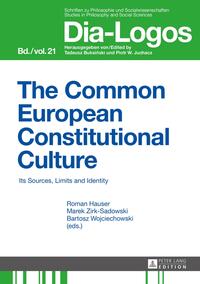
The authors focus on the interrelations between the sense of individual identity and the sense of national identity. Their aim is to find a common European legal culture. The processes of Europeanization have been proceeding on the legal level, wherein the CJEU took a prominent role, and on the level of intergovernmental decision-making. In the aftermath, the EU may be comprehended in terms of the rights-based union and problem-solving entity although the emergence of the values-based community has been stymied and the transnational public spheres are rather thin. This caused a democratic deficit and provoked debates about the EU as a post-democratic polity. There are disputes whether this oddity of the EU indicates its nobility or perversion. But the fact remains that the Eurocitizens in their post-sovereign states became lost in the Hegelian extreme terms of the universal-formal rights. Their individual interests made them especially exposed to the shocks of the economic crisis. This makes it necessary to address the issue of the common European constitutional culture.